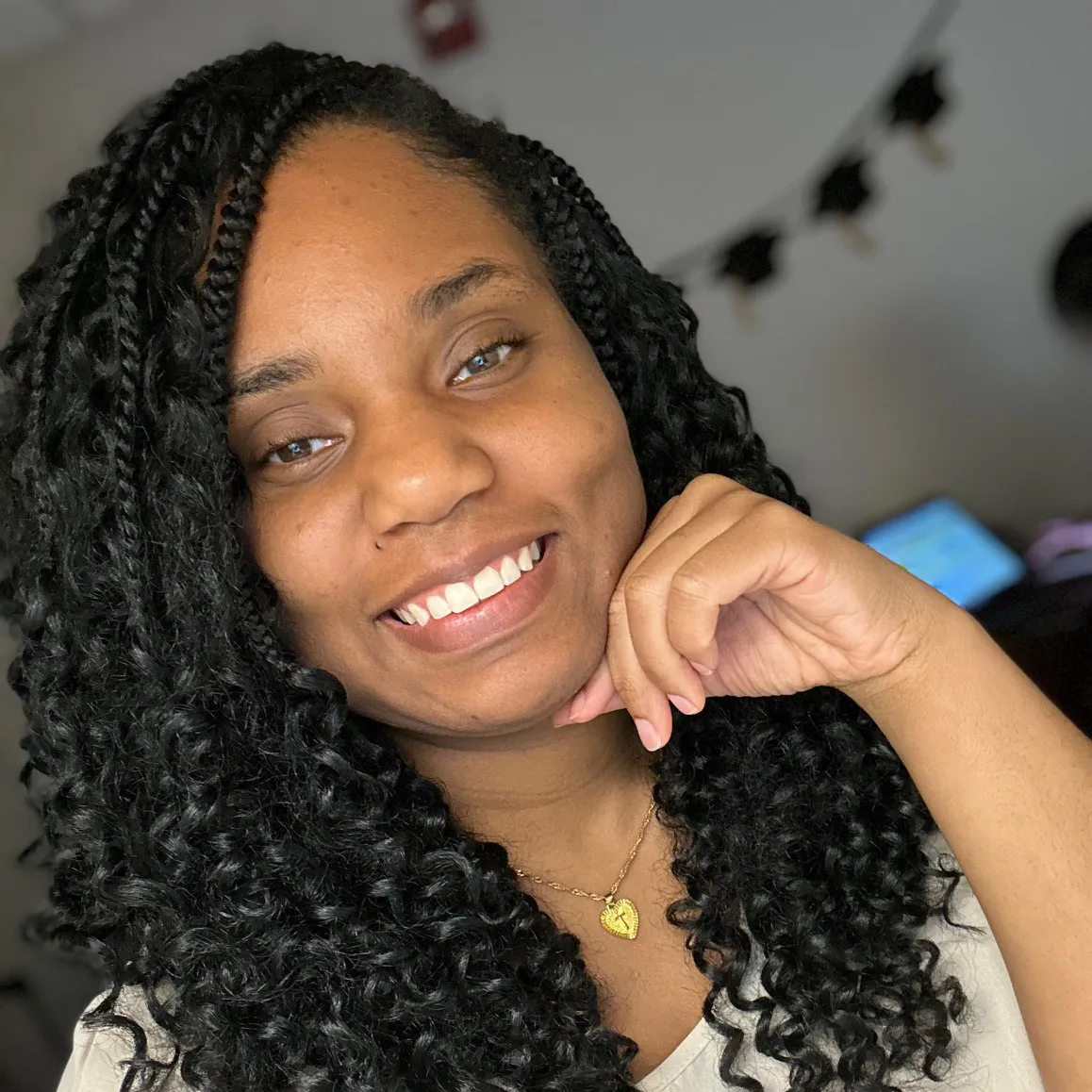An Interview with Tamika, MSW
Tamika (she/her) received a Master’s in Social Work in 2022 and has been working in the social work field for the past four years. We had the opportunity to talk with Tamika about her work and passion for connecting patients to resources.
Tell us a little bit about your background and what brought you to where you are today.
I’m a social work case manager for the Mother-Baby and Labor & Delivery units at a major hospital in Charlotte, North Carolina. As a kid, I was always intrigued by maternal and child health. I used to watch A Baby Story on TLC, then I started watching home births on YouTube. In graduate school, I became more aware and knowledgeable of the reproductive justice movement and abortion access. As a social worker, I’m a natural helper. I know I can’t change a person’s situation, but I do everything I can do in my role to make a difference. I try to bring whole-person centered care to people in the systems they interact with.
A typical day for me involves having consultations with patients in various stages of pregnancy and postpartum and connecting them to resources. For patients receiving abortion care, I connect them to therapists or support groups after the procedure. For parents who want to create an adoption plan, I give them a list of licensed adoption agencies, advise on the process, and empower them with information to make their decision.
Has the Dobbs decision affected the services you or the hospital provides for people seeking abortion care?
We’ve had some people who’ve had to travel to North Carolina from other states to receive an abortion. Since I’m in a hospital setting, I only see patients who come in for scheduled abortions, mainly due to [pregnancy] complications, and some emergency abortions.
I wish more people understood the fear that comes with not knowing where to go to get an abortion. I experience frustration that comes with the lack of resources or even other healthcare providers who don’t agree with abortion or understand the reasons why someone may choose that option. Their views about it can be a little concerning, especially with the field that they work in.
How have Provide’s trainings changed your confidence in providing all-options counseling and referrals, or changed how you feel about abortion?
I was looking for CEUs, and I came across Provide’s webinars. These were the first trainings I’ve done related to this topic. While I don’t really do counseling and referral-making in my current role (because I’m not at an OB/GYN clinic or abortion clinic), the training made me much more aware of how to talk about pregnancy options. I’ve always been pro-choice, but the trainings made me more aware of self-managed abortion (SMA). I wasn’t really aware of them and didn’t know if they were safe or not. Now that I’ve attended Provide’s trainings and read more about it on your blog, I feel differently about the safety of SMA. Your website is so helpful. I like the breakdown of the options counseling and what to say in each scenario. I definitely look forward to attending upcoming webinars!
What’s the biggest challenge you face in your work?
It’s mainly the lack of resources that are available for people that I meet with. Housing is the number one most challenging resource to access. It’s just not affordable or accessible in Charlotte. And with inflation, prices of supplies are going up. When people come to me in need of or asking for resources, I try to find them, but I also know that some of these resources may not be easily accessible. There’s a lot of red tape to go through, or sometimes what the patient is admitted for isn’t really served by the community. I know how hard it is. I know it’s going to take calling resources multiple times to even reach someone. That’s why I try to build relationships with the resources that I’m able to.
Do you have any advice for providers in roles like yours?
Make connections and don’t be afraid to reach out to organizations that you can collaborate with. Through my research I’ve found so many great organizations that I had no idea about, like one for teen parents that helps with everything from car seats and basinets to education assistance.
What’s one self-care practice you can’t live without?
Dance workouts on YouTube! They’re fun and I get to learn new dances and new music. I watch Tara’s Body; she speaks French but the music she uses is universal and from all different genres of music.

